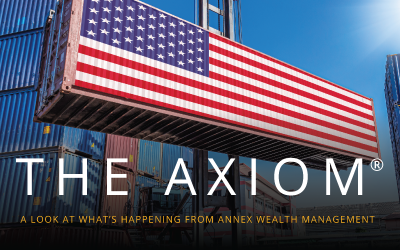NEW YORK — Wall Street drifted to a mixed finish Friday after data suggested that the U.S. job market is still warm enough to keep the economy growing but maybe not so hot that it stokes inflation much higher.
The S&P 500 fell 12.64 points, or 0.3%, to 4,398.95, though slightly more stocks within the index rose than fell. The Dow Jones Industrial Average gave up 187.38, or 0.6%, to 33,734.88 and the Nasdaq composite edged down by 18.33, or 0.1%, to 13,660.72.
A lot is riding on whether the economy can navigate the narrow pathway to avoid a long-predicted recession. It needs to keep growing despite much higher interest rates instituted by the Federal Reserve to bring down inflation. But it can’t grow so quickly that the Fed feels pressure to brake much harder on the economy to prevent inflation from spiraling higher.
Friday’s report showed that U.S. employers added 209,000 jobs last month, a slowdown from May’s hiring of 306,000. Perhaps more important, it wasn’t far off economists’ expectations. That’s unlike a report from Thursday, which sent stocks dropping after it suggested U.S. hiring could be much stronger than expected.
Besides the slowdown in overall hiring, some numbers under the report’s surface also showed some loosening in the job market. More people are working part time because their hours have been cut, for example, said Brian Jacobsen, chief economist at Annex Wealth Management.
“The job market is healthy, for now, but it’s not red hot,” he said.
That could keep the Fed on the course it’s been hinting at recently: perhaps two more increases this year before the Fed holds rates at a high level to ensure inflation returns to its 2% target. The wide assumption on Wall Street is that the Fed will raise rates at its next meeting in three weeks.
Treasury yields were mixed after the much-anticipated jobs data. The 10-year Treasury yield rose to 4.05% from 4.03% late Thursday. It helps set rates for mortgages and other important loans.
The two-year yield, which moves more on expectations for the Fed, fell to 4.94% from 5.00%.
Some concerning signals for inflation were also still embedded in the report.
Wage growth held steady last month, instead of slowing as economists expected, for example. While workers would rather have the 4.4% gain in average hourly earnings from a year earlier than the 4.2% that was predicted, Wall Street’s fear is the Fed will see too-strong wage growth as keeping upward pressure on inflation.
Yields are already around their highest levels since March, which was when high rates helped trigger three failures in the U.S. banking system that rattled confidence across financial markets. High rates have also caused pain in other areas of the economy, from manufacturing to housing.
Stocks in the energy industry were among Wall Street’s strongest Friday as the price of oil rallied. Oilfield services provider Schlumberger jumped 8.6%, Halliburton climbed 7.8% and Marathon Oil rose 4.3%.
The higher crude prices also helped stocks of solar companies, which got an added boost after First Solar announced a $1 billion credit facility from a group of banks. It’s building factories and other expansions, and First Solar shares gained 3.3%.
Stocks of smaller companies also rose more than the rest of the market. Not only do investors see them as moving more closely with the strength of the U.S. economy than big multinational companies, smaller stocks are also viewed as more dependent on lower interest rates. The Russell 2000 index of smaller stocks rose 1.2%.
Shares of Costco Wholesale fell 2.3% after reporting its growth in sales slowed in June from May.
Higher yields helped pull the S&P 500 to a loss of 1.2% for the week. That’s its second losing week in the last eight.






